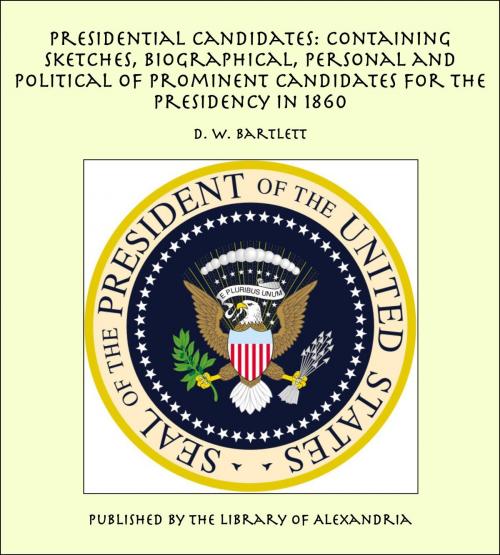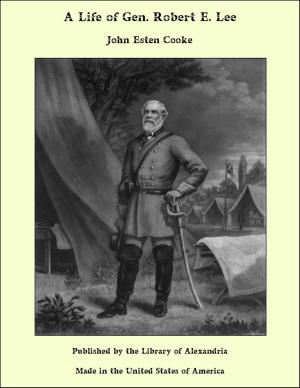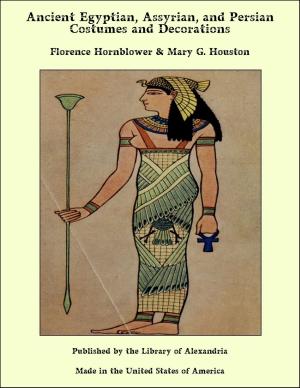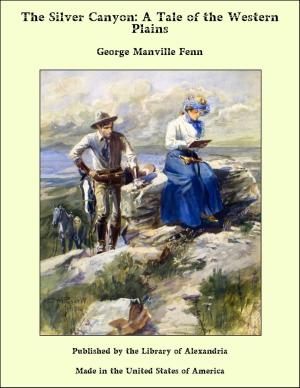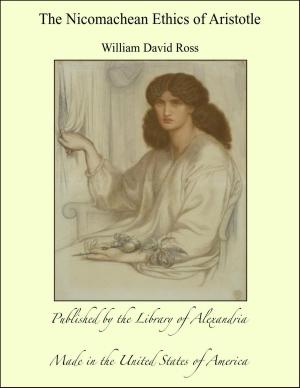Presidential Candidates: Containing Sketches, Biographical, Personal and Political of Prominent Candidates for the Presidency in 1860
Nonfiction, Religion & Spirituality, New Age, History, Fiction & Literature| Author: | D. W. Bartlett | ISBN: | 9781465547545 |
| Publisher: | Library of Alexandria | Publication: | March 8, 2015 |
| Imprint: | Language: | English |
| Author: | D. W. Bartlett |
| ISBN: | 9781465547545 |
| Publisher: | Library of Alexandria |
| Publication: | March 8, 2015 |
| Imprint: | |
| Language: | English |
The sketches in this volume vary in length and minuteness, not from a disposition, on my part, to withhold facts, but because a few of my subjects are too cautious to allow their private history to go before the public; nevertheless, the work contains full and accurate details of the private and public history of our “Presidential Candidates”—not one of whom has any idea of the position I have assigned him. In selecting candidates, of course, I have followed my own judgment—had I made use of everybody’s, I might fill a dozen volumes. I have sketched the prominent men who have been named in connection with the Presidency in 1860. Messrs. Buchanan and Pierce I have passed over as men who have gone through a campaign—and through a Presidential term—and the people know them. It is the men who have not run the race for Presidential honors—the new men—of whom the public would learn something, or I have made a mistake in writing this book. The general reader will easily find in the volume the position of any candidate on the issues of the day; and possibly, beside, interesting personal details which show the character of the man. WILLIAM H. SEWARD. The stranger who enters the hall of the United States Senate and casts his eye over the array of senators, will be not a little surprised, possibly somewhat amused, when William H. Seward is pointed out to him. Accustomed to think of Mr. Seward as one of the greatest men in the country, a first-class statesman, as well as orator—for he has read, not heard, his numberless speeches upon the subjects of the day—he expected to find a gentleman of imposing aspect, to discover the impressive appearance which awes the stranger, or the audience. But, instead of this, he finds a quiet man, sitting in his seat, listening with imperturbable calmness to every senator who chooses to speak, however dry, however provoking, however stupid. For Mr. Seward is well known to be the best listener in the Senate. This arises from his rigid politeness, if we may use the phrase, which will not allow him to refuse his ear and eye to any man who chooses to speak. There he sits, leaning back in his chair, a slender man, of average height, clad in simple black, with a singular face, grey eyes, grey hair, Roman nose, a second Wellington, ever in repose. Who ever saw William H. Seward excited? He is never to be provoked by friend or enemy, and is either devoid of all sensibility, or has a spirit which can triumph over, soar above, the common infirmities of poor human nature. We have seen Mr. Seward on two very trying occasions. One, when Mr. Hale, his friend and seat-mate, thought it his duty to severely criticise his vote on the army bill (this was in the winter of 1857-8), and in which criticism he was very personal. Mr. Seward sat composedly in his seat during the painful review of his brother senator, and rose to reply as pleasantly and as quietly as he ever did in his life
The sketches in this volume vary in length and minuteness, not from a disposition, on my part, to withhold facts, but because a few of my subjects are too cautious to allow their private history to go before the public; nevertheless, the work contains full and accurate details of the private and public history of our “Presidential Candidates”—not one of whom has any idea of the position I have assigned him. In selecting candidates, of course, I have followed my own judgment—had I made use of everybody’s, I might fill a dozen volumes. I have sketched the prominent men who have been named in connection with the Presidency in 1860. Messrs. Buchanan and Pierce I have passed over as men who have gone through a campaign—and through a Presidential term—and the people know them. It is the men who have not run the race for Presidential honors—the new men—of whom the public would learn something, or I have made a mistake in writing this book. The general reader will easily find in the volume the position of any candidate on the issues of the day; and possibly, beside, interesting personal details which show the character of the man. WILLIAM H. SEWARD. The stranger who enters the hall of the United States Senate and casts his eye over the array of senators, will be not a little surprised, possibly somewhat amused, when William H. Seward is pointed out to him. Accustomed to think of Mr. Seward as one of the greatest men in the country, a first-class statesman, as well as orator—for he has read, not heard, his numberless speeches upon the subjects of the day—he expected to find a gentleman of imposing aspect, to discover the impressive appearance which awes the stranger, or the audience. But, instead of this, he finds a quiet man, sitting in his seat, listening with imperturbable calmness to every senator who chooses to speak, however dry, however provoking, however stupid. For Mr. Seward is well known to be the best listener in the Senate. This arises from his rigid politeness, if we may use the phrase, which will not allow him to refuse his ear and eye to any man who chooses to speak. There he sits, leaning back in his chair, a slender man, of average height, clad in simple black, with a singular face, grey eyes, grey hair, Roman nose, a second Wellington, ever in repose. Who ever saw William H. Seward excited? He is never to be provoked by friend or enemy, and is either devoid of all sensibility, or has a spirit which can triumph over, soar above, the common infirmities of poor human nature. We have seen Mr. Seward on two very trying occasions. One, when Mr. Hale, his friend and seat-mate, thought it his duty to severely criticise his vote on the army bill (this was in the winter of 1857-8), and in which criticism he was very personal. Mr. Seward sat composedly in his seat during the painful review of his brother senator, and rose to reply as pleasantly and as quietly as he ever did in his life
